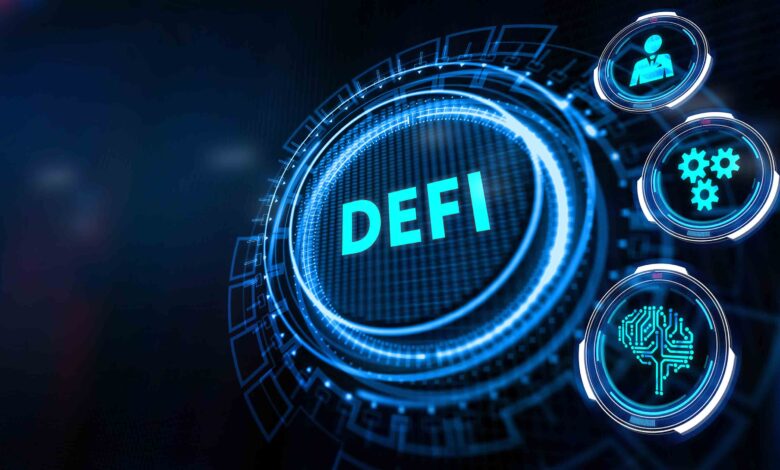Unlocking Financial Inclusion Through DeFi in 2024
Financial literacy, which is a global issue as financial services should be available and affordable to all people and businesses, has always been a constant international challenge.

Financial literacy, which is a global issue as financial services should be available and affordable to all people and businesses, has always been a constant international challenge. In 2024, DeFi technology sprang up to resolve the problem of the financial inclusion situation, offering underlooked people all over the globe access to banking services. This article explains how DeFI is redefining the landscape of financial inclusion in early 2024 on the road to the future.
Access to Banking Services
Among several other services of traditional banks, many people find out they are not accessible to them, especially in remote or undeveloped, areas. DeFi platforms cater as an alternative facing from this issue by offering amide decentralized lending, borrowing, and savings products that forestall the necessity of a bank account for conventional entities. With blockchain technology and smart contracts, people having only a smartphone and an internet connection may use financial services like those of the banked, on that account, smartphones are becoming the only thing needed to access financial services for the undiscovered and underbanked segments of the society.
Cross-Border Payments
Remittances have attracted a lot of criticism because of the high costs and lengthy processing times, mostly debarred developing nations. Decentralization finance protocols bring in the possibility for instant and low-cost inter-peer transactions across borders via cryptocurrencies. Stablecoins that are tied to fiat currencies eliminate volatility in prices and serve as a robust medium of exchange, enabling people to send and receive money smoothly around the world without the involvement of traditional banks as intermediaries. In addition to DeFi, the cross-border remittances services powered by DeFi present an important financial aid to migrant workers, with expatriates or their families who need to send money abroad.
Microfinance and Microlending
Microfinancing organizations serve as a preeminent source of small-amount loans to emerging entrepreneurs and small enterprises in developing countries. In the traditional lending world, the bank or the credit union serves as an intermediary between lenders and borrowers, which is an attempt to eliminate this middleman DeFi platforms create decentralized microlending protocols, which are directly connecting lenders and borrowers. The smart contract can substantially interact with the lending process, dismantling the condition of intermediaries and cutting down the cost of management. Consequently, people who are usually disenfranchised from financial credit institutions can get an opportunity to start and develop their businesses using micro-loans affordable to them, hence, enabling economic growth and a deeper reduction of poverty among the society.
Savings and Wealth Management:
These two elements play a critical role in the financial well-being of every individual, but when it comes to poor households without such accounts investment opportunities are lacking. Financial instruments of decentralized savings and investment management solutions would be an alternative to the conventional banking model, with rates of remuneration and the degree of freedom much higher than those offered by traditional banking products. Participants in Yield farming, Liquidity mining, and staking add liquidity to decentralized projects using their cryptocurrencies and in return earn passive income depending on the protocol. Through these innovative financial tools, participants get the chance to build their assets and secure the future they desire for themselves.
Insurance and Risk Management:
To be a part of the solution to that problem, insurance is one of the key things because it protects against unmeasured consequences and sudden events, but in many regions around the world, the number of those who have the chance to get the insurance coverage is still restricted. DeFi leaks into the insurance sphere via protocols that move funds from participants around and eventually provide coverage against specified risks. Smart contracts are transactional agreements that will impart speed, and exactness and diminish human interaction in the value chain of the insurance claims processing which enhances the transparency and efficiency of the insurance process. With DeFi insurance, the risks individuals and businesses are exposed to are effectively reduced, as a result, bringing sustainability and stability to volatile communities.
Last Thought
Fundamentally, DeFi is a vehicle for advancing financial inclusion via blockchain that makes it possible for everyone with an internet connection to access financial services that could be expensive or opaque otherwise. It enables users to participate in secure, fast, and affordable financial services globally. The DeFi junction to the availability of financial services, cross-border payments, the provision of microfinance facilities and development of microcredit, and the launch of microfinance innovations becomes quite easy. Moreover, the DeFi revolution develops a base for financial learning and continuously empowers individuals to take part in the global financial system, irrespective of economic status and geographical location. The rising momentum of DeFi may confirm its potential to produce an all-inclusive and equal financial system toward a more cohesive worldwide economy.



